A sensational film by American director Darren Aronofsky, which received rave reviews from critics and audiences at international film festivals, was released on the network, demonstrating the return to big cinema of Brendan Fraser. Many people know Darren Aronofsky from the films: The Wrestler, Black Swan, Requiem for a Dream, Fighter. His films have always received high marks from critics and viewers, and the actors have received all sorts of laudatory reviews and awards (including Oscars), which, of course, is the merit of the director. But since Aronofsky shoots almost art-house movies, its marketing component is practically absent, and therefore the audience of his films is very small, but its number makes it possible for the films to pay off, so film studios allocate money for them.
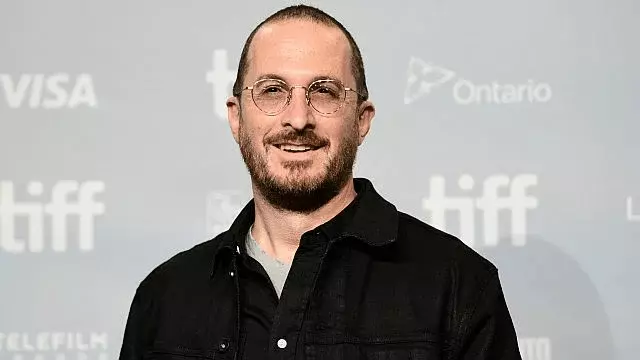
The main element that promoted the film was the return of Brendan Fraser to big cinema. Which, after forced pauses in cinema and filming in rather mediocre films and voice acting of animated series, finally tried on a serious and dramatic role.
The Whale (2022) tells the story of teacher Charlie (Brendan Fraser), who is obese, his health is almost catastrophic, and he realizes that he will soon die. Therefore, before his inevitable death, he is trying to restore relations with his daughter – Ellie (Sadie Sink) and give her at least some parting words for a future life. But since he left his family for the sake of his lover (yes, HIM), neither his daughter nor his ex-wife wants any help from him, much less communication. And only when her daughter needed help with an essay to continue her studies in high school, she sometimes agrees to just be with her father (and then only for the fact that after Charlie’s death he will leave her $120 thousand).
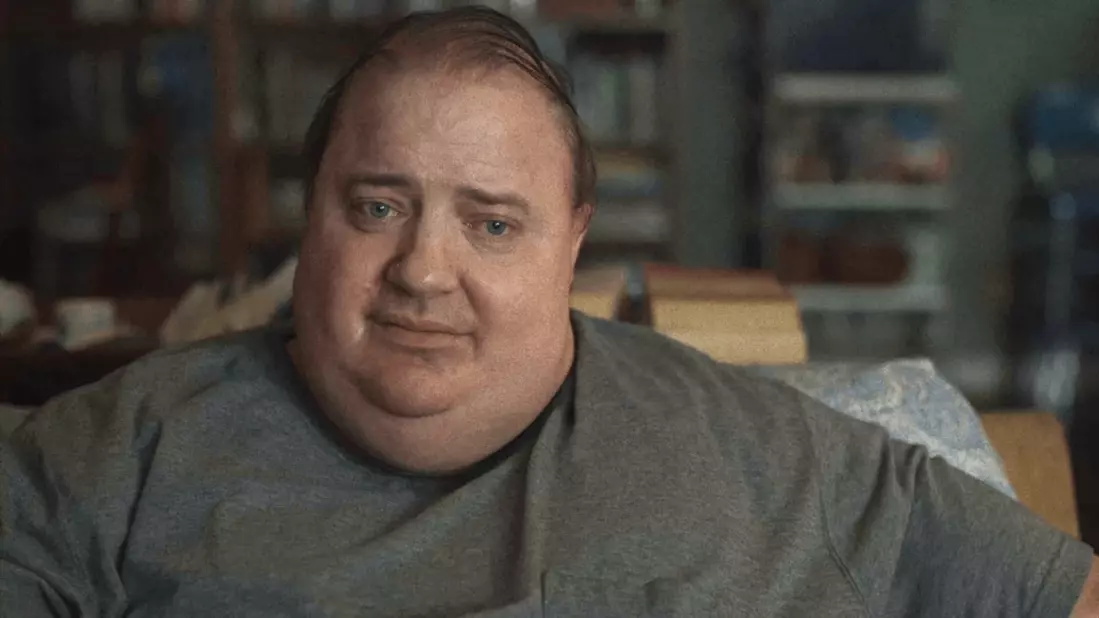
Fraser’s character is shown as an ordinary person, remotely working as an ordinary teacher, who, despite everything, tries to see only the positive around him. The main motive of the film, touched upon by the director, is to show, through the character of Fraser, the problems of continuous consumption. His character is a metaphor for modern society: thoughtless, continuous absorption (not necessarily just food) leads to the degradation of man and society as a whole. Charlie is shown as the highest point of indifference to everything around, as a result, his existence, actions, deeds become meaningless, and his existence for society is a burden that hinders his development. His indifference is shown even in relation to his own health, which he begins to think about only when he has about a month left to live, instead of thinking about his health and condition in general,
His daughter Ellie is a typical modern teenager, with a postmodern stance, denying everything that can be denied. Hating mother, father, others, not wanting to learn, living aimlessly and meaninglessly. But even in her, Charlie tries to see something good, despite the fact that even her mother, Mary (Samantha Morton), sees only the bad in her and does not see any prospects in her future. Aronofsky shows a hint that she is capable of a good deed, but this act looks so forced and forced that it cannot affect the attitude towards the character as a whole.

Therefore, the whole storyline with Charlie’s daughter, on which the film focuses, is very doubtful. Neither Charlie (who deliberately distanced himself from her after leaving for a lover) nor her mother were involved in her upbringing. So what do they want from a child. Of course, she hates everyone and does not want to achieve anything in life. She is ready to even be in the same room with her father only because of the inheritance. And parents’ attempts to fix something at this age look pointless.
And only the hero of Fraser is to blame for all this. It was he who left his family with a child, he refused to communicate with her, explaining that he did not want to hurt her. In addition, he has a lot of money in his account, but he does not spend it on treatment, helping his former family (in excess of what is required by law), even his girlfriend Liz (Hong Chau), he does not pay a penny. Although it is she who does all the work of caring for Charlie: housework, finding medicines, medical equipment. She does this solely out of love and compassion, without any selfish purpose. And how should the viewer relate to such a main character?

In addition, Charlie’s Aronofsky promotes the idea that people should be honest with each other, even if it’s negative things about their parents, teachers, studies. And when he is honestly told that he is disgusting, he is offended. Which, apparently, is set in opposition to modern fashion trends like body positivity and similar phenomena.
However, despite all the shortcomings of the film, all the actors play their roles perfectly. Frazier’s incredible natural make-up and Matthew Libatique’s cinematography convey the life of the protagonist very naturally, showing the complex and difficult life of Charlie. Whose every movement is a painful labor, and any object that he needs to take is an incredibly difficult obstacle. In addition, the entire action of the film takes place in one house, and most of the film takes place in one room (although it would be more correct to say on the same sofa), on which he works and eats, by the way, the scenes with Charlie’s eating were filmed as disgusting as possible, reinforcing the already impartial appearance of the character.
Since “The Whale” – like the director’s previous works, is practically an art house, Aronofsky tried to lay deep thoughts and questions that, according to the director, cannot be unequivocally answered – these are questions of fathers and children, religion, family, love; but in the case of this film, everything is more than clear. From the position of an ordinary person, the hero of Brendan Fraser himself is to blame for his fate. It was he who left his family with a child for the sake of a lover, it was he who did not communicate with his family, it was he who gained weight, due to stress after the death of his partner (apparently, leaving the family did not cause him any stress), it was he who until the very end refused any treatment. Therefore, no matter how deep the director put into this film, Charlie got something that, with such an attitude towards himself and others, he could not help but get, and he himself is to blame for his unambiguously sad fate.
After my favorite actor of the 2000s, Brendan Fraser, received his well-deserved Oscar for best actor , my attention was drawn to the aesthetically unpleasant, but on the other hand, touching and internally painful film by Darren Aronofsky “The Whale”.
I confess that at the very beginning, the picture from the point of view of aesthetics, and from the point of view of what is happening, caused me denial and some kind of disgust.
However, I prefer not to judge immediately and decided to open up to this film, to pay attention to my feelings not from the head, but from the heart. Pass it through yourself, so to speak.
I must say right away that the Overton window of “non-traditional” topics is opening up to us more and more, and I suggest remembering this and not succumbing to propaganda manipulations.
I do not judge, this is a personal matter for everyone who loves, but I am definitely against the propaganda of this whole story to the masses.
Therefore, I will not focus on this here.
The story of “The Whale” is not a story about motivation, as we are used to seeing.
It is not a question of overcoming difficulties for the sake of a higher goal.
How many times have films been included in the banal blogger lists “Top 10 inspiring films that you definitely need to watch” . The movie “The Whale” is not one of them.
And this is its main highlight.
This is a movie about failure.
This is a film about pain.
This is a film about the harsh truth of life.
And a breath of air in a musty apartment.
Personally, he touched me to the core, because instead of disgust, I let in sympathy. The film allows you to sympathize with each character, because they all experience pain in one form or another.
In this film, we will not see hidden meanings, secret messages, only the psychology of pain.
And this is what I want to focus on in the analysis of the film.
Charlie the Story Explain & Character Guide
The whole film is the last week of the life of a person suffering from a serious disease – obesity, from which a whole bouquet follows in addition.
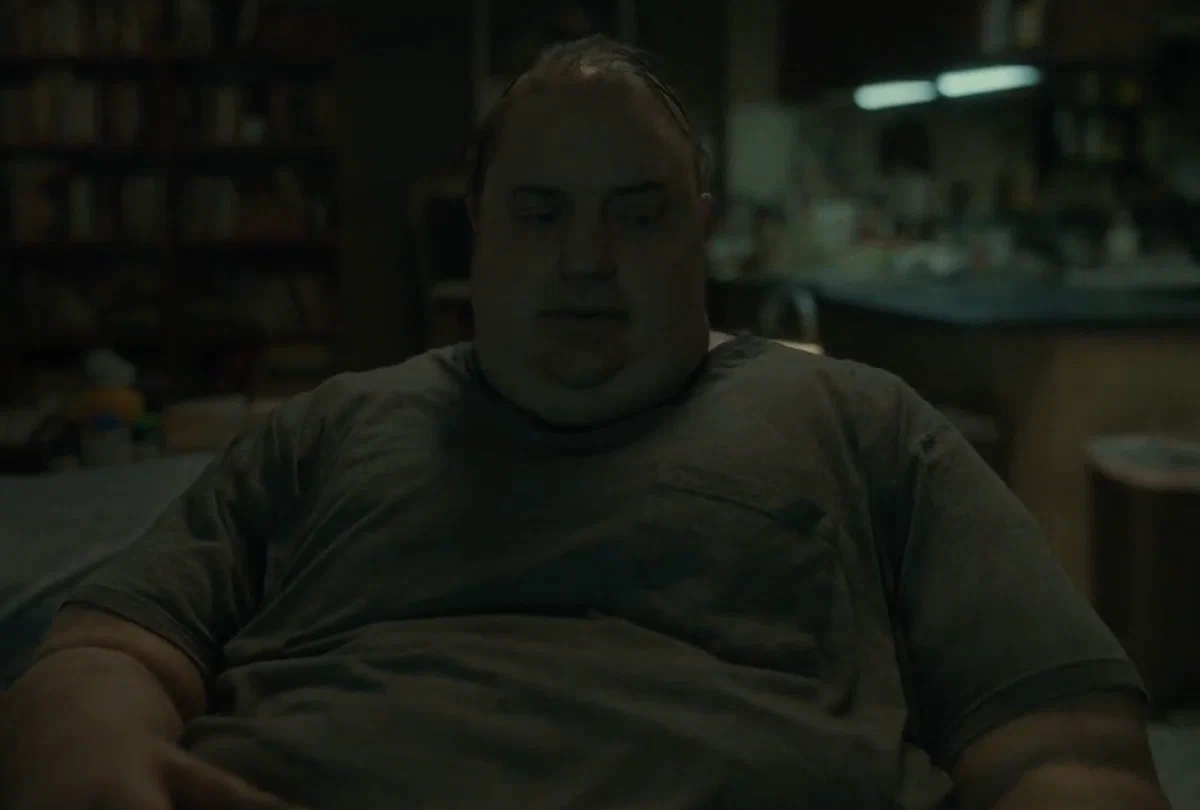
Frame from the film The Whale
From the point of view of psychosomatics, being overweight indicates a desire to protect yourself, as if a person is putting on armor. He is touchy, fraught with hidden anger.
Heart failure – lack of love, joy, belief in the need for stress and tension, this is a life of constant drama. This is the desire to earn the love of others.
Legs – unwillingness to move forward, old and conservative beliefs.
And further down the list.
And of course, in order to cure the diseases of the body, the spirit must first be cured.
All these diseases speak of Charlie not as a bad person, but about someone who has not gone into work on himself all his life, who has accumulated pain in himself, for whom the best defense is suppression.
Self suppression.
He said: I have always been big.
That is, it began long before his loss of a loved one.
And here he first suppressed his orientation, then the guilt that he left his daughter, and only then the loss.
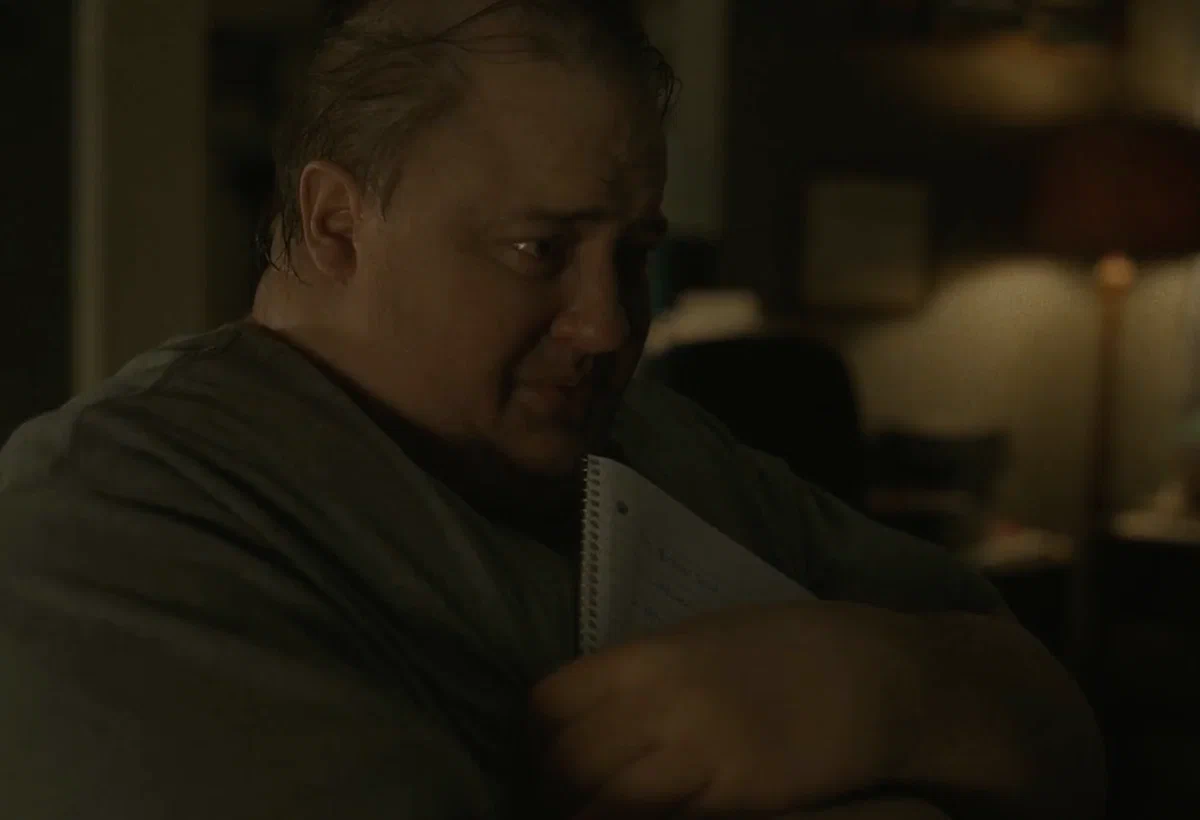
Frame from the film The Whale
When he read those unfortunate three lines that Ellie wrote about “I hate everyone . ” Of course, this touched him, because behind the mask of goodwill, he hates everyone, but first of all himself.
Without loving himself, a person cannot give love to the world, truly love others.
When Thomas came to him with the realization why “God sent him” to Charlie, he says that his partner committed suicide precisely because he could not come to terms with his carnal sin. That is, out of love for Charlie.
Charlie himself began to aggressively deny this, although it is likely that he himself knew this, at least subconsciously.
And that is why he felt a deep sense of guilt for the death of a loved one and launched a self-destruction program.
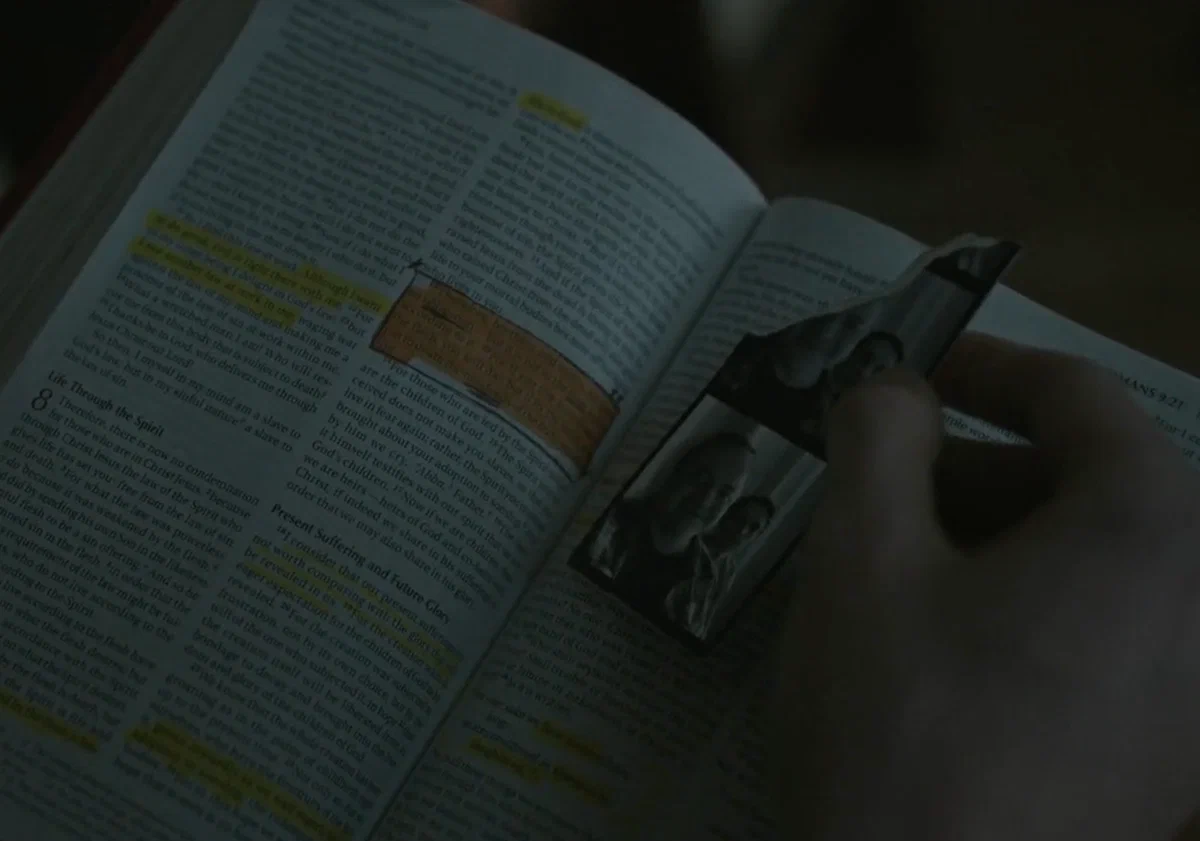
Frame from the film The Whale
He is afraid to show himself in public, because in the eyes of people the attitude that he feels towards himself will be read.
Money is the same tool of ransom for parents who lacked love and time for their children. As if money can buy the love of children.
This is a way to justify “You see, I do everything so that you have a good life. I deny myself everything, if only you had everything.
Everything except what is really needed – attention and love.
Charlie set aside money for Ellie, didn’t spend it on medical treatment that was really needed.
And this attempt to earn love shows him as a real egoist.
Selfishness is that he puts his complexes in the first place, not thinking that it will really be more important for his daughter that her father is alive and well than all this money accumulated by the victim.
The sacrifice usually always remains unappreciated.
This is money saturated with the energy of suffering, not love.
Why does Charlie still deserve compassion?
It would seem that a person is filled with horror inside and out.
Despite the fact that Charlie was swallowed up by darkness, he lived in a world where it always rained outside the window, as in his soul. But in the end, he strove for the light, desperately strove. He wanted love, but all his positive words only distracted us from his own pain.
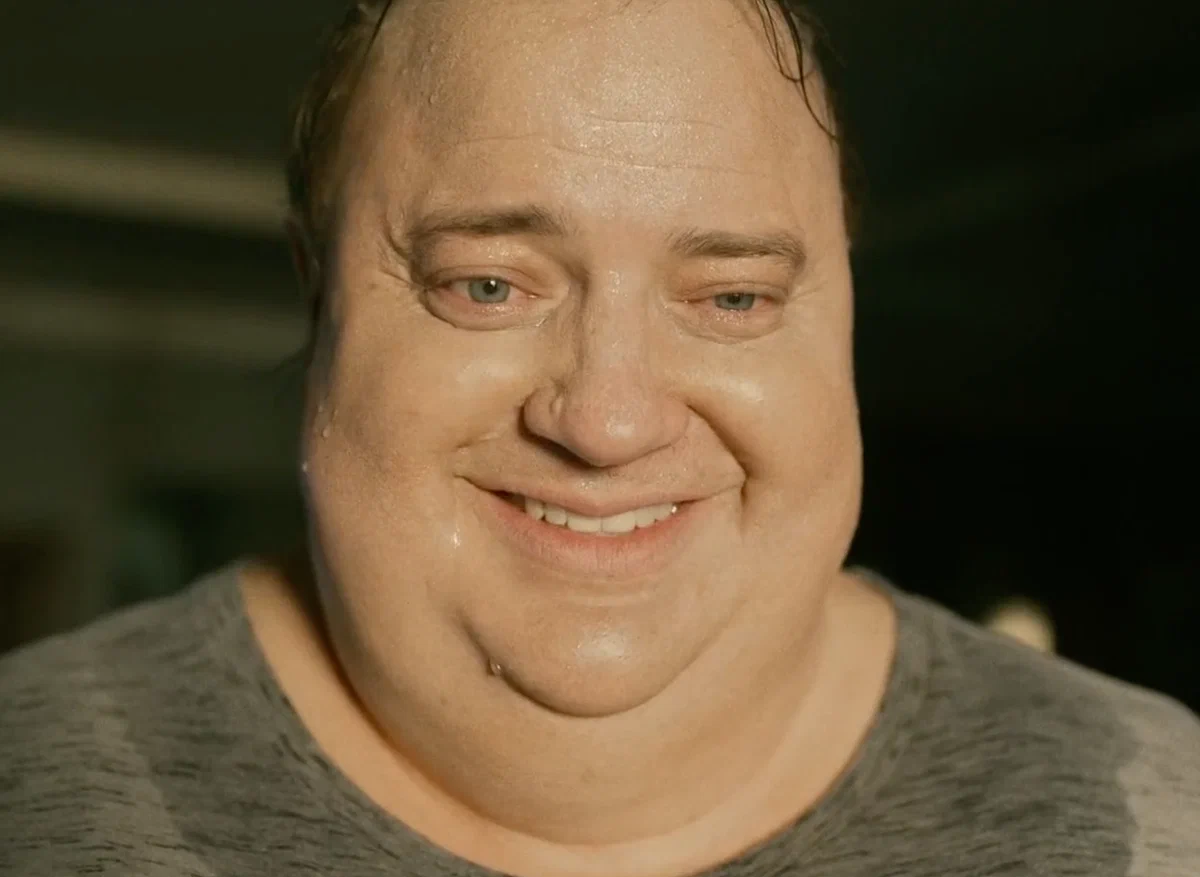
Frame from the film The Whale
Fear is not a faithful adviser, and it was fear that prevented him from coming into the light.
And when he became ready to accept the truth, he became ready to open it, to open himself. What he did for his students.
And most importantly for Ellie, showing how much her essay means to him.
He got up and walked towards Ellie. His love finally opened, the sun came out the window so that he could go to the light.
And this manifestation of true love is his main achievement .
Mary the Story Explain & Character Guide
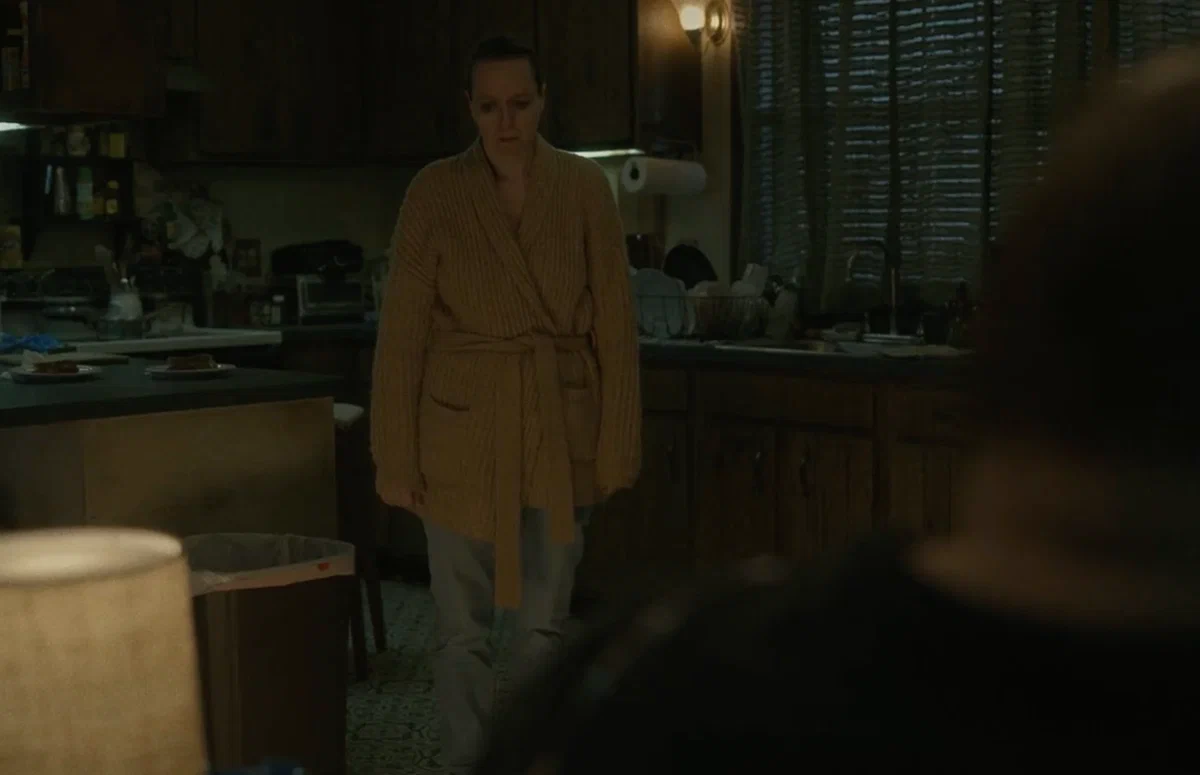
Frame from the film The Whale
We know little about Charlie’s ex-wife, but at the same time enough.
And before moving on to Ellie, it’s important to understand her parents.
Mary kept Charlie from communicating with her daughter. Here is an insult to him, but first of all, again, to herself.
She differs from Charlie only in that she did not want to deserve love and did not suppress her aggressive feelings.
Another question, did it make her happier?
She conveyed her anger and aggression to Ellie. Here is exactly the same idea as in the Oscar-winning “Everything, everywhere and at once” .
From whom should a child learn kindness and love?
And if Charlie had the potential to fight with kindness and love , then Mary was always aggressive.
In their dialogue with Charlie, she says that now she does not have the balance that Charlie created: she was negative, and he was positive.
She said so: “You are the same as before. You have the same annoying positivity.”
And on the one hand, his positive was often based on the suppression of the negative. And on the other hand, it annoyed her, because in herself there is no love and kindness.
And when she confesses that she did not want Ellie to communicate with him, so that he would not see what a bad mother she was. But in fact, it was Charlie who could help Ellie become kinder and more loving in this situation.
And the fact that Mary did not suppress her negativity saved her from a bunch of diseases. But at the same time, she did not work with this in any way, because cultivating positivity and love in herself is directly related to working on herself.
Experiencing positivity and love does not mean that it is forbidden to experience negative emotions.
It means to live through these negative emotions, to live to the bottom, to experience all this pain. But then a person has a choice – to take these emotions further with him and turn them into a destructive resentment and carry it all his life or let go of this pain, choosing the path of forgiveness and love.
Love is a choice.
And then the positive will come from love, and not from suppression.
Ellie the Story Explain & Character Guide
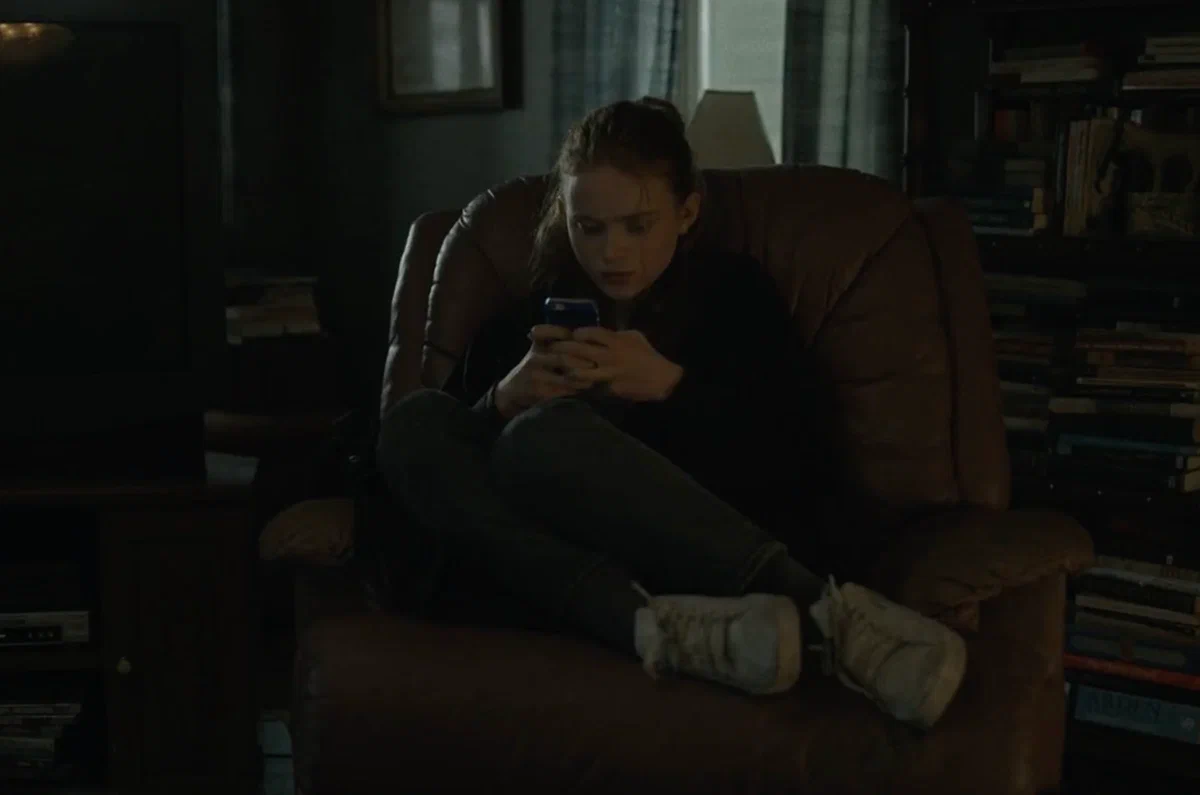
Frame from the film The Whale
At first glance, it may seem that Ellie is vicious and cruel. She can even anger and annoy someone. Someone may resent her behavior.
But frankly, if you show empathy, then you can understand it and feel only sympathy.
What can be a child whose parents are in the absence of love? First of all, love yourself.
A child is always half mom and half dad.
And of course, up to a certain age, a child needs both parents.
Now we do not consider cases with inadequate parents (tyrants, alcoholics, drug addicts, etc. deviations), since in the film both parents, although not ideal, would at least not harm her physically.
Mental harm – yes (although I do not consider this the norm, but in our society, with this approach, almost any parent can be deprived of custody).
Ellie’s aggression is nothing but pain.
And given that teenagers experience everything more exacerbated, because during this period they say goodbye to their childhood and move into adulthood. Few prepare their children for this transition. And so they have to deal with their emotions on their own.
And of course, all grievances come out and transform into anger.
Simply because teenagers themselves do not know what is happening to them and how to deal with it.
Is it possible to say that Ellie is cruel and hates Charlie, that she is not ready to forgive him?
If it were true, she would not come to him.
Every time she wanted to give him a chance.
Although she was in severe aggression, she opened her pain to him with the words: Why was he not with her? He could at least call. He could be present in her life.
And of course it was important to her.
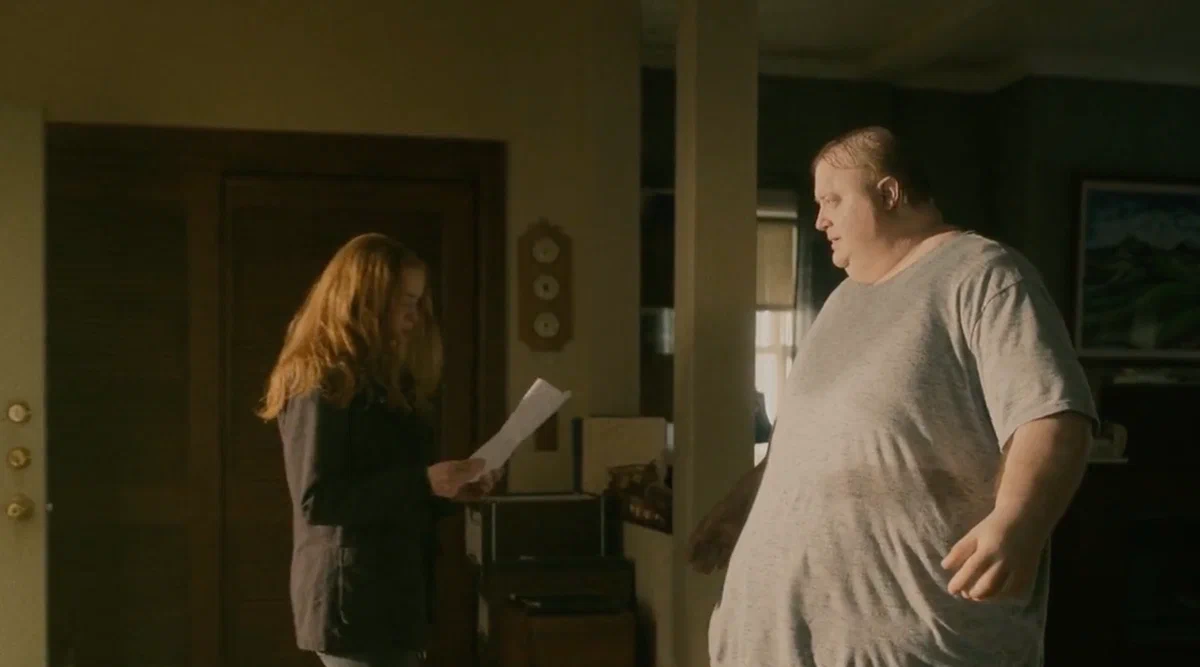
Frame from the film The Whale
And an amazing ending.
All the years that Charlie was away, inside he was with her, he only asked about her, he kept her essays, and that was what he wanted to hear before he died.
Because this is an essay about love and forgiveness.
Ellie in this essay, like the whalers who tried to kill the whale, she also tried to hurt her father so that he would feel her pain.
But in the end she was happy for the whale.
This scene is truly touching and reveals the flow of love and forgiveness.
Liz the Story Explain & Character Guide
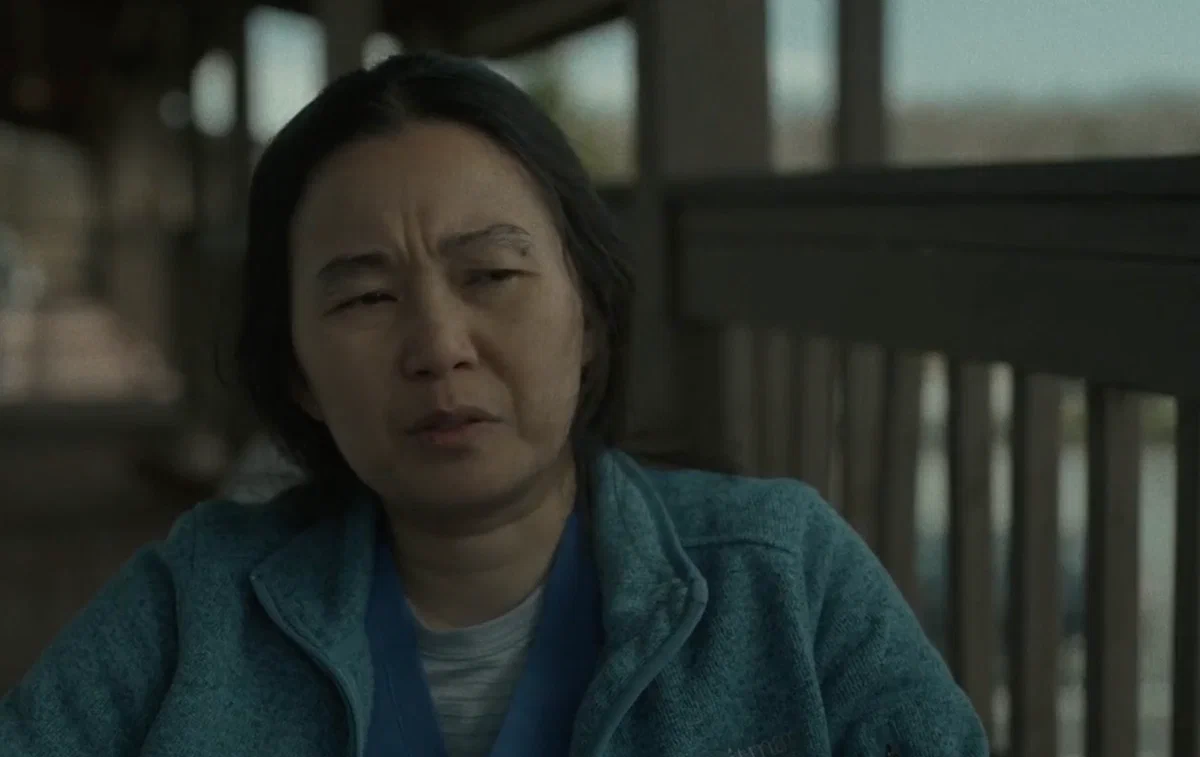
Frame from the film The Whale
Charlie’s girlfriend and the sister of his loved one for me personally looks ambiguous.
Yes, she goes to Charlie, takes care of him, brings equipment from the hospital, brings food and looks almost like a saint.
But.
Questions arise: Why is she, being a nurse, understanding all the symptoms and consequences – giving Charlie a strange carbohydrate food that rather kills him, like Chinese torture?
She is angry that someone comes to Charlie, especially his daughter. When on the contrary, it would rather help him. Especially in the last days of his life.
And although she cared about him outwardly, inwardly, it seemed that she seemed to be taking revenge on him for the death of her brother, blaming him for this.
And therefore it can be regarded that in her heart there is more resentment than love.
I wonder how you think Liz felt about Charlie?
However, one can sympathize with her, because it was not Charlie alone who lost a loved one, she also experienced the bitterness of loss.
She was an outcast in a believing family. What kind of love are we talking about here?
Thomas the Story Explain & Character Guide
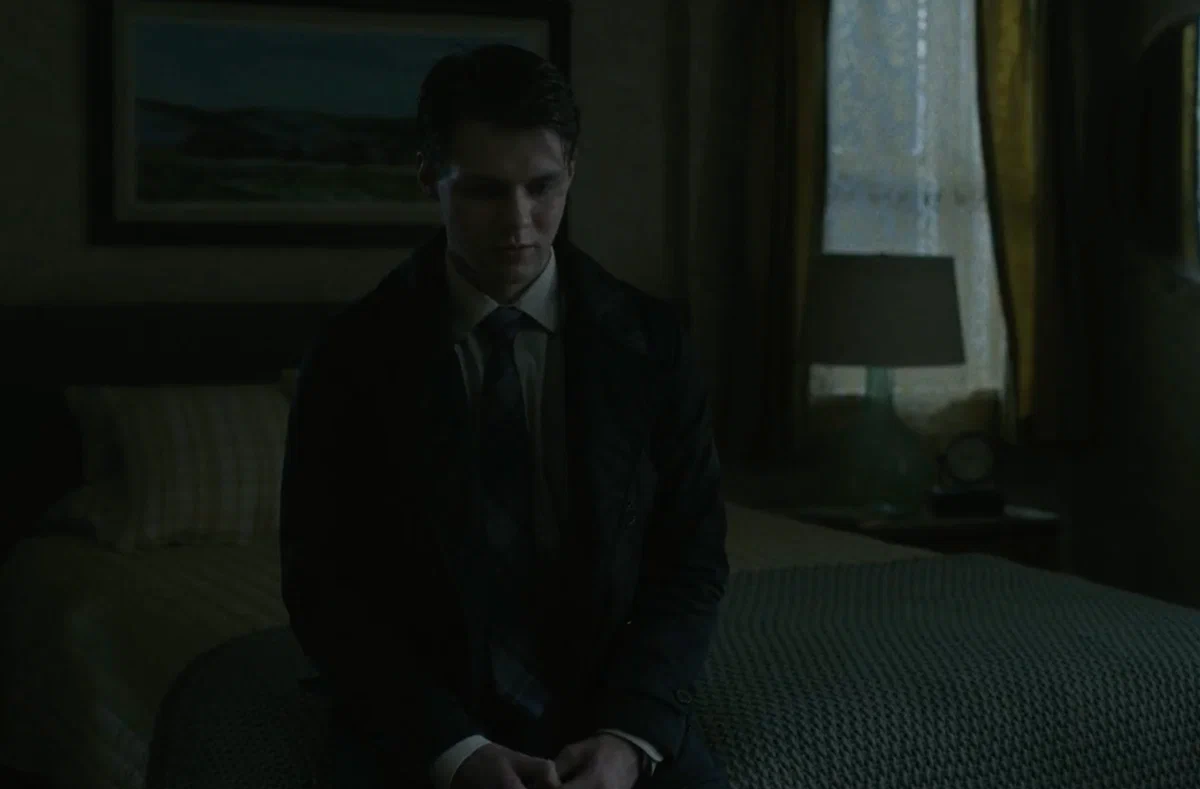
Frame from the film The Whale
Thomas’s motivation, which is initially declared to be “to help come to God”, actually turns out to be a desire to save another in order to justify his actions. And Ellie is absolutely right here, no one can save a person except himself.
He thought that he could thereby return the love of loved ones to himself. But love is unconditional.
To some extent, the realization of unconditional love saves him from the path of Charlie, because now he does not need to deserve anyone’s love.
And his story has a positive ending.
As a result, you can say that all the characters are a circus of freaks. But in fact, these are ordinary people, each with their own pain, with failures, with internal problems. People who can’t cope, like hundreds and thousands of people of other people.
But the most important victory of a person is to grow love, first of all, for oneself, so that there is something to give to the world.
Each character deserves sympathy, as one wise man in the book of J. Rowling said:
“Do not pity the dead, Harry. Pity the living, and especially those who live without love.”
Thank you for reading to the end!







